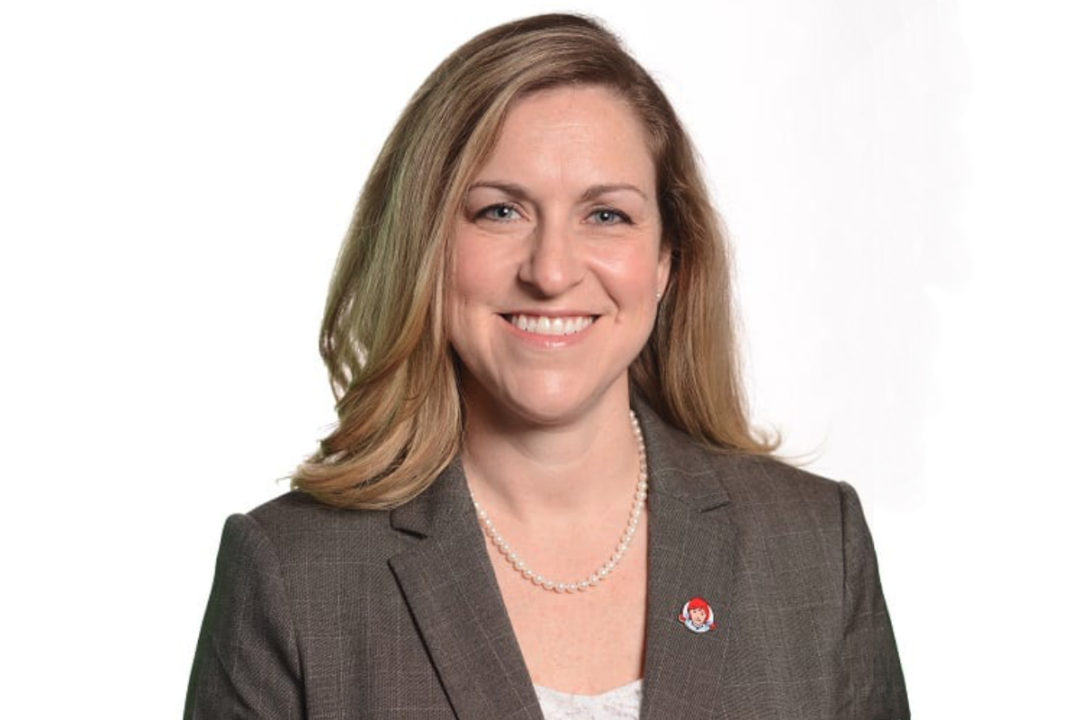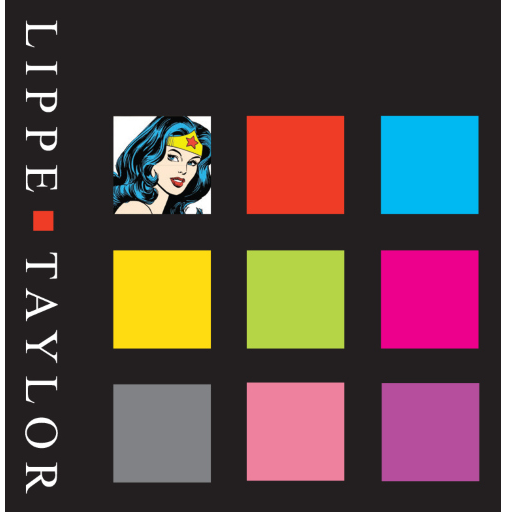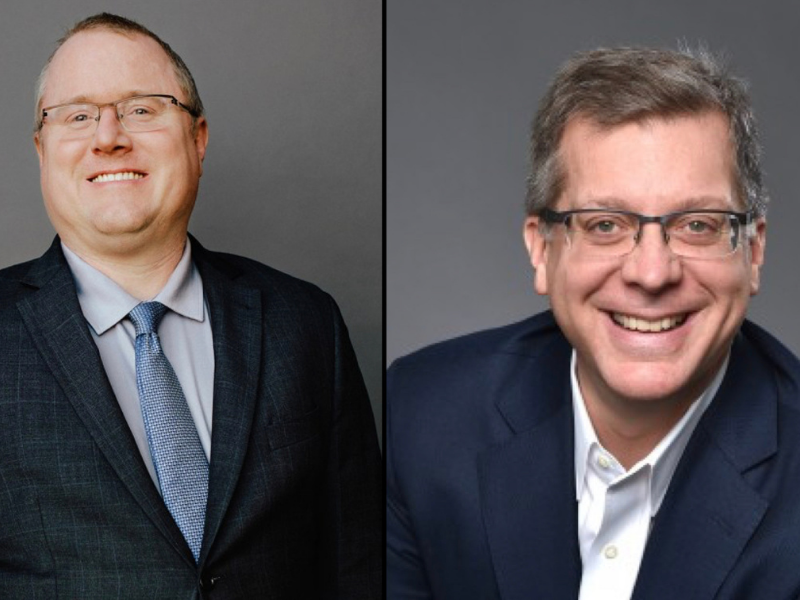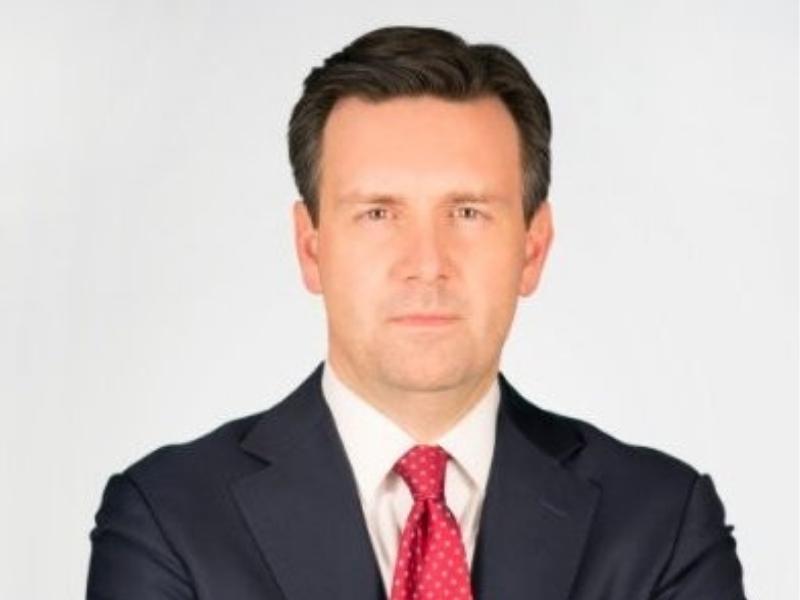Lippe Taylor 18 Mar 2022 // 4:34PM GMT

Liliana Esposito is the chief corporate affairs & sustainability officer at The Wendy's Company where she guides public affairs and communications to build and protect the company’s reputation. Liliana has spent nearly 15 years leading communications for consumer packaged goods, beverage and restaurant brands, with stints at Burson-Marsteller, Mars, and Dean Foods.
Wendy’s is one of the most notoriously funny brands on social media and also one of the boldest, known for cutting edge campaigns and never-been-done-before stunts. In this conversation, we discussed Liliana’s experience during the pandemic, her approach to DE&I, and how Wendy’s is able to keep its winning edge in the social media ecosystem.
Feel free to listen to the entire conversation on Lippe Taylor’s Frictionless Marketing Podcast below.
Here are some key takeaways from this conversation with Liliana.
Be inspired, but be yourself.
When it comes to Wendy's, the brand's constant innovations and fresh thinking — coupled with its funny and often sassy humor — makes it an extremely unique voice. Liliana is often asked by other brand executives how their brand can be more like Wendy's, to which she often replies, “Don't.” Instead of attempting to replicate a brand's presence, Liliana recommends that brands find their own voice by leveraging communal listening and determining what they can bring to the community.
Don't kill creativity with ROI.
One of Wendy's traditions is Roast Day, in which they publicly roast a slew of other brands, resulting in hilarious Twitter banter. This stunt has become synonymous with Wendy's, but Liliana speaks to how it’s not designed just to sell more chicken nuggets. The point she makes is that Tweets like the unexpected, yet playful jabs help the brand build a following and remain top-of-mind, naturally leading to better business results.
Transparency is key during uncertain times, as is community.
Throughout the course of the pandemic, companies universally had to take a deeper dive into their internal communications approach and Wendy's was no different. Liliana observed a craving for both up-to-date information and a connection with the Company among both employees and key stakeholders. To address this, she streamlined communication protocols in favor of real-time conversations, which enabled the company to thrive during these uncertain times. Internal comms approaches are being completely rebooted, and for good reason, she says. It's time to throw out the rule books and speak with your people and stakeholders in real time.
Paul Dyer: Liliana, thank you for joining us.
Liliana Esposito: Hey, thanks for having me here today, Paul!
PD: So you’re obviously in the fast-food restaurant category, an industry that probably had more change in the last two years than it did in the 20 before that. I’d love to hear a bit about your experience and any lessons learned.
LE: The early days of Covid-19 were pretty scary and you weren't sure what was coming next. Fortunately, we found that Wendy's, and certainly the quick serve restaurant industry, had a very resilient business model.
Over 50 years ago, Dave Thomas decided that restaurants should have a drive-through attached to them — that is something all of us here at Wendy's are very thankful for today. It provided a critical service to the communities that we operate in and serve, but it also provided a way for our business to rebound and get back to at least a relatively normal operating model fairly quickly.
Prior to the pandemic, we estimated that three quarters of our business was through the drive-through, at an average restaurant. Now it's more like 90%, but you're not talking orders-of-magnitude difference compared to other types of business that really had to turn on their head in terms of the way that they serve their customers.
What we found (and what we continue to find) is the importance of communications. I operate from a position of bias given my role within the company, but what we found was that there was just a craving for information and a connection to each other within the company. 95% of our restaurants are owned and operated by franchisees, so that's another really critical audience for us. We had to be quicker, more direct, and more unfiltered in terms of the way that we were engaging — and certainly more two-way, making sure that we were engaging in discussions and dialogue with our employees, franchisees and restaurants. And that continues until today.
If there is a silver lining in this environment, it's been learning how to connect even more directly with each other and seeing the resilience of a business that had been built over many decades.
PD: Wendy's recently did the first National Roast Day, where the brand was inviting others to be roasted and doing a wonderful job poking fun on social media and things like that. You've also done a lot of other firsts, like the first branded activations in Fortnite, and you've invested in gaming and things like that. How do you make sure that Wendy’s stays on that leadership edge?
LE: We're often asked by either other brands or agencies, “How can we be more like Wendy's on social media?” The answer is, usually, “You shouldn't, because you should be yourself, you should be your brand.” I think it's really all about looking at what's authentic to your brand. What's the connection that your fans really want from you? What's the best way to bring that to life? Whether that’s engaging with gaming through Fortnite or otherwise, I think it's just a matter of feeling what's right, but also being really respectful of the boundaries that your fans want you to be respecting.
Roast Day is a lot of fun and I think the team does a great job of stepping up to the line, hopefully not going too far over it. But 2020 was the time where we said, “This isn't right, right now. We'll come back to Roast Day. That’ll be something better suited for another point in time.” So being attuned to that and not being tone-deaf to what's going on in the broader world around you is critical.
PD: How would you approach talking about the ROI of roast day?
LE: I don't know that I can tell you if we sold a specific number of incremental chicken nuggets because of Roast Day, but it's continuing to build that following and build that relationship with our fans. It definitely halos into better business results. For a 50-year-old brand, you have to keep it fresh. You have to make sure that you're doing it in a way that's relevant. And I think we get credit for our history and our heritage for quality and innovation that we’ve created in the past, but you have to continually show up every day. Everybody's only got one lunch to eat a day. So if you're gonna be the favorite brand, you have to do it over and over.
PD: You said you’ve got a great team, but it's more than just talent. There's a culture, there's a mindset, there's a way of approaching the work that maybe people should think differently about. Is there anything you would recommend?
LE: I think it probably starts with listening. Before you start speaking and spouting off what you want people to hear, just listen to what they're talking about and listen when your brand gets pulled into a conversation.
It's sort of like going to a party, or throwing the party — there are certain conversations that happen that you don't have to be involved in. You're creating the environment where that can happen. There are certain conversations that you might not want to happen, but they're still there. You don't throw a party and then try to control every single aspect of it. It would be the worst party in the world.
But I think it does start with listening and really being honest with yourself about, are we engaging in a way that people want us to show up, or are we just engaging in a way that we think will benefit the message that we want to get across? It's not always the same.
PD: We've talked a lot about the pandemic, but the other recent mega-trend that really has influenced a lot in terms of employee/employer relations has been the cause for social justice, greater transparency and DE&I initiatives. This has led to a lot of agencies developing new offerings. In terms of these initiatives, what do you look to your internal team to handle, versus your external team — agency partners, etc.? What is it that you think the industry should be doing?
LE: I think about the client/agency relationship — and I've lived on both sides of that throughout my career. I think when that relationship is at its best, a couple of things are true. One is that the agency feels like an extension of the brand of the team. The other piece, particularly for the agency side of the relationship, is that you don't live in a bell jar or with the company; that you do exist in a broader world.
It is incumbent on agency partners to push their clients to be provocative, to be authentic. I think particularly as it relates to diversity, equity and inclusion, everybody has a role to play. And it starts with starting at home. At Wendy’s, it's an area where we've been focused for some time.
We have absolutely doubled down on asking ourselves, “Are we really doing enough? Are we really living the values that we put on the wall?”
We created an Office of Diversity, Equity and Inclusion and hired our first chief of that function and have been really intentional about the way we bring that to life. We certainly expect that of our agency partners as well, in their own way.
They're doing it in a way that works for them, based on their organization, but we're absolutely partners in that journey. One of the things that we determined we could do is make more of a commitment to youth, education and social justice within the Black community.
We did that financially with some partnerships, but also using our social voice. In a number of cases we turned over the reins of our own properties, whether that was Twitter or Instagram, to partners that could help elevate Black voices or could help elevate a dialogue that needed to happen around social justice. It’s not something that we, as Wendy’s, would say that we are experts in, but instead we’re trying to provide the platform that could allow other organizations and voices to be better heard.
PD: But I have to ask: lots of companies have talked about doing page takeovers, but a massive brand allowing another organization to speak from their microphone does not happen often. What was that process like?
LE: I wouldn't say that there was a tremendous amount of process to it. I think what made that a natural choice were the partners that we were working with. Working with the Thurgood Marshall College Foundation, working with the Urban League of Columbus, working with some partners who were newer to us. We knew that there was a great community that was listening to Wendy's and would be well inclined to listen to these other voices that just had so much to say.
PD: Well, I think that's great advice, Liliana. Thank you very much for all your insights and for sharing your time with us here today, we greatly appreciate it.
LE: Thanks! I couldn't leave without a plug for Wendy's breakfast. It's great. If you haven't tried it, you should get out there and give it a try. We hope to see you all at a Wendy's near you very soon!
PD: See you for breakfast soon!


































.jpg)














